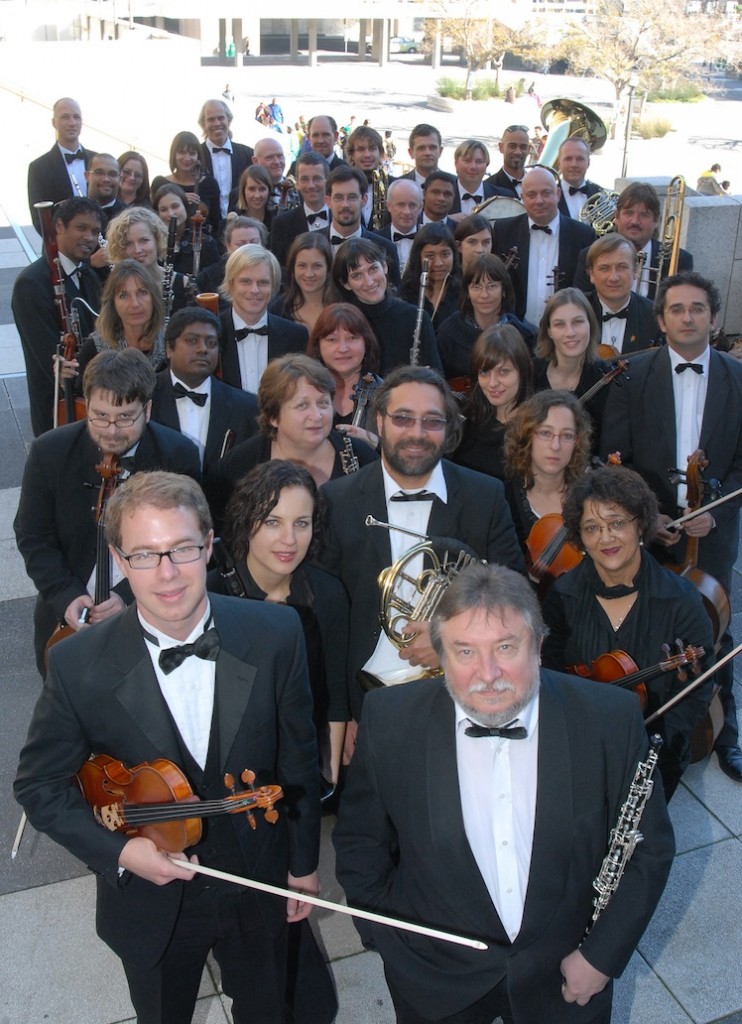Rimsky fares best in African orchestra’s American debut

The Cape Town Philharmonic performed Thursday night at Parker Playhouse in Fort Lauderdale.
The Cape Town Philharmonic came to Fort Lauderdale Thursday for a performance of Bernstein, Tchaikovsky and Rimsky-Korsakov, in the first U.S. tour ever by an African symphony orchestra.
The ensemble, based in the old Dutch provisioning station that would grow into South Africa’s second-largest city, reflects the changes that have taken place in the country in the post-apartheid era. Founded in 1914, it has become multiracial, with about a quarter of its musicians now made up of nonwhites.
Yet ultimately, the performance at Parker Playhouse was more significant for its historical than its musical content. The 65-member orchestra does not approach the quality of the North American and European orchestras whose tours take them through South Florida. Violin intonation was spotty and winds and brass played without much refinement of tone or phrasing, giving a raw, unbalanced texture to many passages. Parker Playhouse, a gloomy setting with a stage so badly lit that part of the orchestra was lost in shadows, has a dry acoustic that would challenge any ensemble.
But the orchestra, led by the young Bulgarian conductor Martin Panteleev, had clearly rehearsed carefully for its U.S. tour, with every note in place and a tone of assurance that carried it through the evening. This was evident from the start, in Bernstein’s Candide Overture, where the lilting themes came off with a good amount of polish and spirit.
The soloist for Tchaikovsky’s Violin Concerto was the young Russian-American virtuoso Philippe Quint. His performance was more refined than most, a polished account that emphasized the lyric elements of the work and avoided the scratchy, bowhair-breaking theatrics that this concerto seems to inspire in some violinists.
That said, his performance could have used more bite. Passages such as the difficult triplet double-stops in the first movement were tossed off without much apparent effort, but also without much shape or drama. Similar passages in the last movement sounded better, with a driven, machine-like quality that was more effective than the over-emoting of some performers. He was at his best in the melodic passages that took him to the instrument’s upper reaches, where his warm, singing tone brought out the concerto’s passion and yearning.
The second half was devoted to Rimsky-Korsakov’s Scheherazade, a tone poem based on the story of a sultan’s wife who prevents her own execution by entertaining her husband with stories over the course of 1001 nights.
The work presents one of the supreme challenges to the concertmaster, with spidery violin solos representing Scheherazade that grow in complexity and difficulty. Concertmaster Patrick Goodwin met the challenge impressively, with a warm tone, evocative phrasing and no apparent struggle with difficult passages, carrying through to the very end, where he soared to the upper reaches of the instrument for the work’s quiet conclusion.
The orchestra played its best in this work, surging and robust in the themes representing the sea in the first section, with first-class solos in clarinet, bassoon and flute. There was gentle sensuousness to the romantic third movement, and the orchestra brought a fiery drama to the shipwreck section of the last movement.
Posted in Performances
Leave a Comment
Fri Feb 18, 2011
at 11:46 am
No Comments






